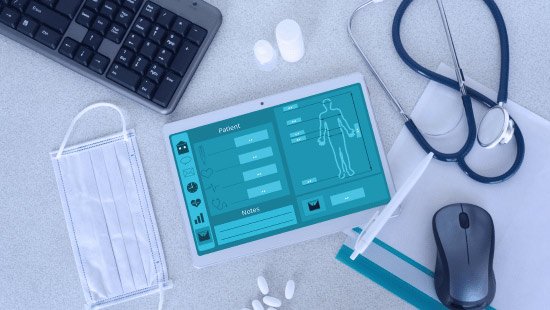In the vast and ever-evolving landscape of healthcare, digital technology stands as a beacon of progress, ushering in a new era that promises not only to transform how healthcare services are delivered but also to redefine the very essence of patient care. This revolution, known as digital healthcare, is not merely an augmentation of traditional healthcare practices with technology; it’s a radical reimagining of patient care, aimed at enhancing accessibility, efficiency, and personalization.
At its core, digital healthcare leverages cutting-edge technologies such as artificial intelligence (AI), machine learning, telehealth, and wearable devices, creating a healthcare system that is both more interconnected and tailored to individual patient needs. The implications of this shift are profound, touching everything from routine check-ups to chronic disease management, and even mental health support.
Personalized Medicine: A Leap Forward
One of the most striking manifestations of digital healthcare is the advent of personalized medicine. Gone are the days when treatment plans were largely one-size-fits-all. Today, AI algorithms analyze vast amounts of data, including genetic information, to tailor treatments to the individual’s unique health profile. This approach not only increases the effectiveness of treatments but also minimizes side effects, leading to improved patient outcomes.
The Rise of Telehealth: Breaking Down Barriers
Telehealth, or the delivery of healthcare services remotely via digital platforms, has emerged as a cornerstone of digital healthcare. Amidst the global challenges posed by pandemics, telehealth has proven indispensable in ensuring continuous patient care while minimizing the risk of contagion. Beyond its immediate benefits, telehealth democratizes access to healthcare, making medical advice available to people in remote or underserved areas, thereby bridging the gap in healthcare accessibility.
Empowerment Through Wearables and Apps
Wearable health technology and health apps represent another frontier in digital healthcare. Devices that monitor heart rate, blood sugar levels, and even sleep patterns provide individuals with real-time insights into their health, empowering them to make informed lifestyle choices. Moreover, these devices facilitate a continuous stream of data to healthcare providers, enabling proactive management of health conditions and a shift from reactive to preventive healthcare.
The Challenges Ahead
Despite its promise, the path to fully integrating digital healthcare is fraught with challenges. Privacy concerns, data security, and the digital divide are significant hurdles that must be addressed to ensure equitable access and protect patient information. Moreover, the human element of healthcare—the empathy and understanding between patient and provider—must be preserved and integrated into digital platforms to maintain the trust and rapport that are essential to effective healthcare.
The Future is Now
The journey toward digital healthcare is a complex but necessary evolution in our approach to health and wellness. As we navigate this new frontier, it’s clear that digital healthcare is not just redefining patient care; it’s reshaping the future of health itself. By harnessing technology to make healthcare more accessible, personalized, and efficient, we are stepping into a future where everyone has the opportunity to achieve their best health.
In conclusion, digital healthcare represents a bold reimagining of patient care, marked by an unprecedented convergence of technology, medicine, and patient empowerment. As we continue to explore this new frontier, the innovation potential is limitless, promising a healthcare landscape that is more inclusive, effective, and attuned to the needs of every individual. The journey is only just beginning, but the direction is clear: digital healthcare is leading us toward a brighter, healthier future.
Also, read more at “kiendel.com“
